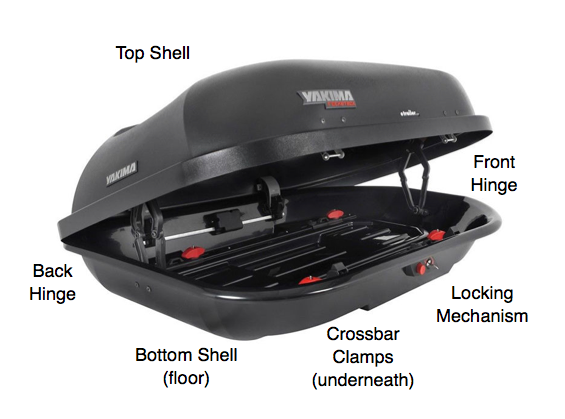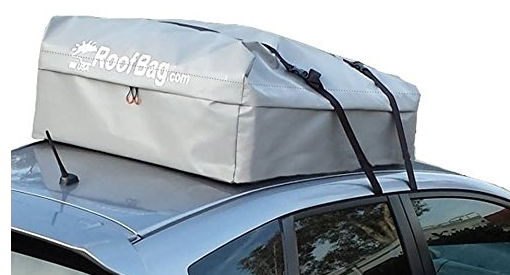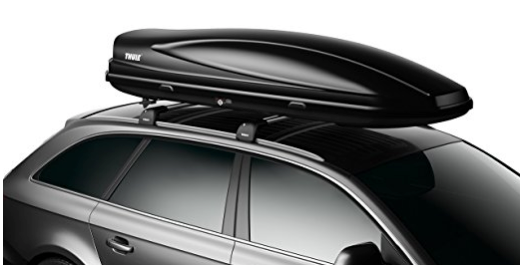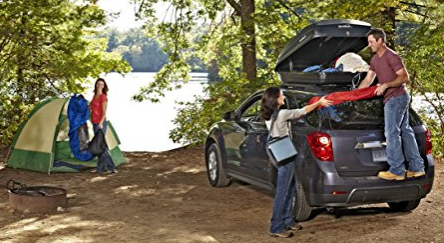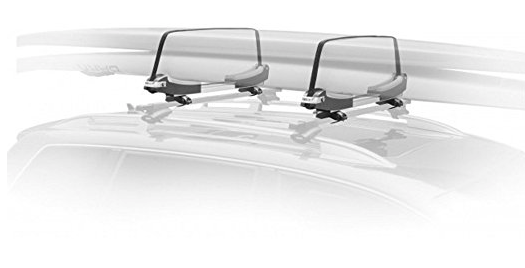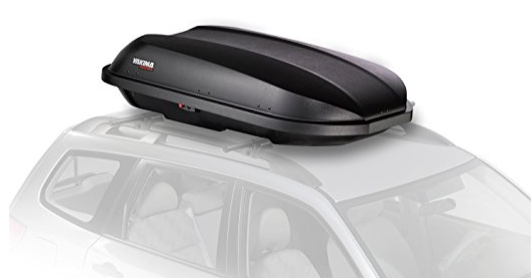After a really bad road trip experience with my family (you can read about that here), I decided to create a resource to help others find the right rooftop cargo carrier.
The decision to buy a carrier is the easy part but the product research is much more difficult.
If you are like me, then you know how great it is to buy on Amazon.com. Lots of products and reviews and, as a Prime member, the shipping is amazing. What was needed was a resource that would highlight the good and bad points of all the different rooftop cargo carriers out there.
But I could not find that resource on the Web. Anywhere. So, I created it. And now you are getting the benefit of that hard work.
Recommended Cargo Carriers
| Product Name | Click Image Below to See Review | Rating | Type | Application |
|---|---|---|---|---|
| Pro Series 63153 | 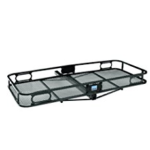 | 4.5 | Rack | Hitch |
| Yakima SkyBox Carbonite Cargo Box | 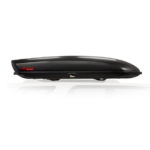 | 4.5 | Box | Roof |
| Thule Sidekick Rooftop Cargo Box | 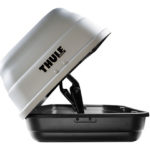 | 4.0 | Box | Roof |
Researching the Best and What to Watch Out For
On our site you can learn about the best car top carriers and what makes them so great (and what some of the challenges are too!). I’ve also included hitch cargo carriers, in case you have a truck or want to double up with a car top carrier and a hitch based carrier as well.
Our mission is to make buying a rooftop or hitch cargo carrier as easy and quick as possible by bringing you high quality reviews of the most popular models all in one place.
Here I review and provide the important specs and details to make your research easier and faster.
What Should You Look At When Buying a Car Top Carrier?
Price
Price is important but when it comes to cargo carriers, you do get what you pay for. I don’t recommend choosing one only because it is cheap. If it is cheap, there is a chance that quality is also inferior. It would be better to spend for an expensive product if this means that you will be able to enjoy quality that will be hard to match.
 Capacity
Capacity
Based on the size of your vehicle, you can choose various sizes of rooftop cargo carriers. The range is big but most carriers are in the 12 to 18 cubic feet volume range. To pick the right size for your situation, consider the type of vehicle (car, truck, van, SUV) and the size of your vehicle (small, medium, large). Of course, the size of the carrier will dictate how much extra stuff you can bring along outside the vehicle.
Style
An important consideration is the shape of the carrier. Yes, by choosing an aerodynamic carrier you will get reduced wind noise and better gas mileage, so it could pay for itself (the extra cost over a bulky bag version) if you put on a lot of miles.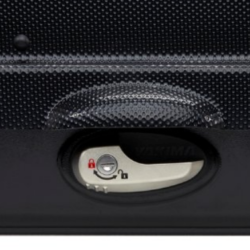
Security
No matter which model you pick, you will want some sort of lock mechanism. These locks are not typically bank-vault secure but, rather, just enough of a hassle that the quick thief in close quarters might think twice about trying to break into your carrier. One downside of soft sided carriers is that a sharp Buck knife will always make quick work of breaking in.
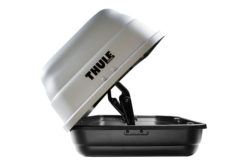 Accessibility
Accessibility
This is a big deal (trust me on this). You want to be able to get into your carrier from both sides. There are some carriers that can be only be accessed from the front or
rear – this is not your first choice. Imagine having a rooftop box installed on a mid-sized SUV or a minivan. Being able to reach the inside (you will be reaching inside BTW), is easiest if you can step up on the floor of the vehicle from the side. I don’t recommend standing on your seats to try to reach your gear!
Quality and Where Manufactured
Call us biased but I an a big fan of made in the USA! You should buy a cargo carrier that is build to last and is good value for the money. Look for durable  materials and a long warranty period. Most of the hard-shell carriers are made of ABS plastic. And no, you won’t find any carbon fiber shells, that would be much too expensive. (Although, I’d love to see one!) ABS plastic provide excellent protection from the elements and makes for a great clamshell structure. Rooftop bag-style carriers are made of a heavy vinyl-like material and can work well in some circumstances.
materials and a long warranty period. Most of the hard-shell carriers are made of ABS plastic. And no, you won’t find any carbon fiber shells, that would be much too expensive. (Although, I’d love to see one!) ABS plastic provide excellent protection from the elements and makes for a great clamshell structure. Rooftop bag-style carriers are made of a heavy vinyl-like material and can work well in some circumstances.
Understanding the Components of a Car Top Carrier
In order to make sure you choose the best cargo carrier for your own intended use, you should familiarize with the basic parts of a rooftop carrier and a hitch cargo carrier.
